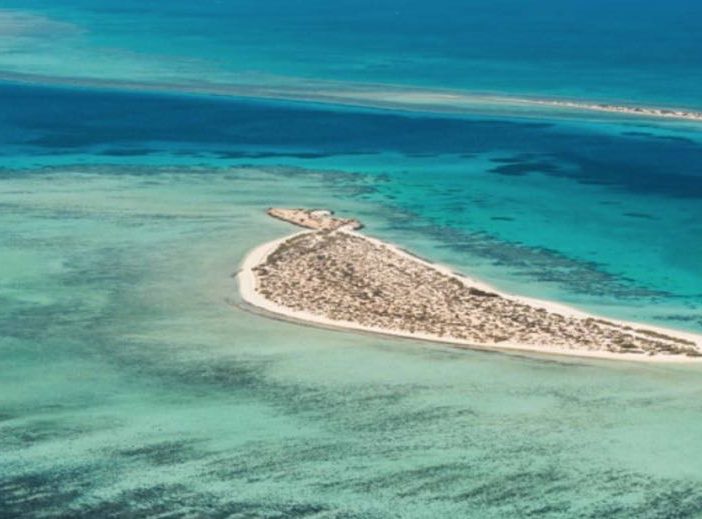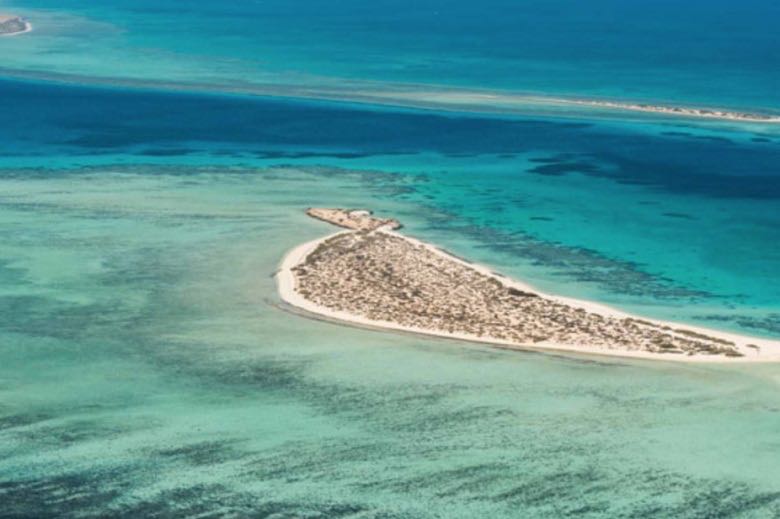
A consortium led by Saudi Arabian-based renewable energy developer ACWA Power has been awarded the contract to design, build, and operate the utility infrastructure for The Red Sea Project, a tourism development billed as “the world’s most ambitious regenerative tourism project.”
The contract will see an initial 210MW of wind and solar capacity built to generate electricity for the project, and includes what the developers are terming “the world’s largest battery storage facility of 1000MWh” which will ensure the new tourism hub remains completely off-grid and 100% powered by renewables, day and night.
(By the time the facility is built the battery will likely have been bettered in size by several projects in the US, and possibly matched by the new AGL battery announced for South Australia).
The Red Sea Development Company announced on Monday its first public-private partnership which secured important multinational investment in return for the rights to design, build, and operate The Red Sea Project’s utilities infrastructure.
Billed as “the world’s most ambitious luxury tourism development” and set to offer “an exclusive experience of unparalleled diversity for discerning global travellers,” The Red Sea Project “will encourage visitors to explore the wonders and rich cultural heritage of Saudi Arabia’s Red Sea Coast.”
Beyond the hyperbolic travel agent promises is a more reliable commitment to ensure the project delivers an environmentally responsible utility infrastructure across renewable energy, water production, wastewater treatment, and district cooling.
As such, this new contract marks The Red Sea Project as the region’s first tourism destination to be powered solely by renewable energy.
Further, according to the developers, a tourism project of this size to be powered solely by renewable energy has never been achieved on this scale anywhere in the world.
“This is a pivotal moment for us as we seek to build a new kind of tourism destination in Saudi Arabia, aligned with Vision 2030,” said John Pagano, CEO of The Red Sea Development Company.
“We’re committed to pushing the boundaries of what it means to be sustainable and investing heavily in renewables is helping us to set new global standards in regenerative tourism.
“At the same time, we are delighted to partner with a consortium leader that has its roots in the Kingdom and shares our ambition to accelerate the energy transition locally.”
The contract signed with the ACWA Power-led consortium will deliver multiple utility services including renewable power, potable water, wastewater treatment, solid waste management and district cooling for the 16 hotels, international airport, and infrastructure that make up phase one of The Red Sea Project.
Electricity for the project will be generated by an initial 210MW of solar and wind capacity, with the ability to expand in line with future development of the project. As it stands, the agreement is expected to deliver up to 650,000MWh of 100% renewable energy and result in CO2 emissions savings equivalent to nearly half a million tonnes annually.
Hidden deep within the press release announcing the agreement is the promise of “the world’s largest battery storage facility” which will supposedly boast capacity of 1,000MWh.
“With the largest battery storage facility in the world in place, we can guarantee that the development is 100 percent powered by renewable energy 24 hours a day, 365 days a year, an accomplishment which has never been achieved on a project of this scale before,” said Pagano.
“This approach requires entirely new utilities infrastructure, and so a public-private partnership (PPP) contract makes sense as it ensures high quality, affordable utilities for us and a sound return on the investment for our backers.”
Construction work currently remains on track to welcome the first guests to the new tourism site by the end of 2022, when the international airport and first of the four hotels will open. The remaining 12 hotels are also scheduled for completion within Phase One in 2023 and will in turn deliver a total of 3,000 rooms across five islands and two inland resorts.
Upon completion in 2030, The Red Sea Project is expecting to reveal 50 hotels with up to 8,000 hotels, and around 1,300 residential properties across 22 islands and six inland sites.
As tourism capacity increases, then, so too will renewable energy needs. Additionally, ACWA Power will construct three seawater reverse osmosis (SWRO) plants which are designed to provide clean drinking water.
Construction will also include a solid waste management centre and an innovative sewage treatment plant (STP) that the developers expect will allow waste to be managed in a way that enhances the environment – specifically, by creating new wetland habitats and supplementing irrigation water for landscaping at the destination.
“The Red Sea Project is a vital undertaking under the Saudi Vision 2030 and aims to be a global showcase of the Kingdom’s ability to develop ambitious giga projects,” said Mohammad Abunayyan, Chairman, ACWA Power.
“Being selected to support this project marks another milestone in our impressive bid win trajectory, and we are honoured and proud to support TRSDC’s ambition to deliver a tourist destination that limits the environmental impact through the provision of zero-carbon emitting and zero-waste generating utility services.”



